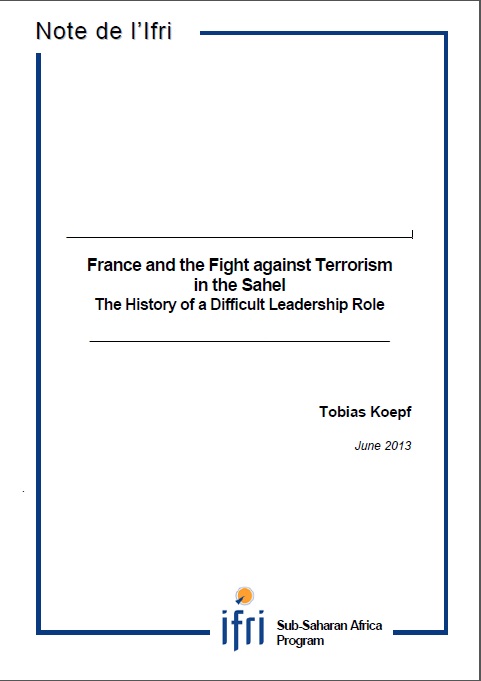France and the Fight against Terrorism in the Sahel: The History of a Difficult Leadership Role

Except for its extreme poverty and the disastrous effects of a series of droughts, the Sahel region has been largely out of the spotlight of international attention in the past. Yet the rise of terrorism and especially the creation of Al-Qaida in the Islamic Maghreb (AQIM) in 2007 brought the region into the focus of world politics. Initially, AQIM"s activities in the Sahel mainly posed a threat to the stability of the Sahelian states themselves. In an effort to internationalize its agenda, however, AQIM also started targeting Western countries.
France, the former colonial power that has close historical links to the countries of the region, has been most affected by AQIM"s activities. Between 2007 and 2011, commandos linked to the terrorist group kidnapped several French citizens, launched bomb attacks on the French embassies in Mauritania and Mali and repeatedly threatened to launch terrorist attacks on French soil. This spurred France to assume a leadership role in international efforts to fight AQIM. The present study gives an overview on the development of French policy in the Sahel over recent years. In a first part, it analyzes how the rise of terrorism in the Sahel brought the region back into the focus of French foreign policy. A second part takes a look at the French response to the threat from AQIM and the difficulties France faces in this context. As will be shown in a third part, these difficulties are also reflected in France’s efforts to lead an international response to the crisis that set Mali in turmoil in early 2012. In a fourth and last part, the study scrutinizes the impact of the French intervention, Serval, on France’s role in Mali and in the Sahel - taking into account developments prior to the end of April 2013.

Available in:
Regions and themes
ISBN / ISSN
Share
Download the full analysis
This page contains only a summary of our work. If you would like to have access to all the information from our research on the subject, you can download the full version in PDF format.
France and the Fight against Terrorism in the Sahel: The History of a Difficult Leadership Role
Related centers and programs
Discover our other research centers and programsFind out more
Discover all our analysesAnglo-Kenyan Relations (1920-2024) : Conflict, Alliance and a Redemptive Arc
This article provides an evidentiary basis for postcolonial policy in its analysis of Anglo-Kenyan relations in a decolonization era.
When City Diplomacy Meets Geopolitics: A Framework to Help Cities Navigate Geopolitical Risk
Crises and the increasing polarization of international relations make political risk analysis an indispensable resource for internationally active public and private entities.
The United Nations Mission in Congo or the exemplary uselessness of the United Nations peacekeepers
During the M23 conflict in 2012-2013 in the Democratic Republic of Congo (DRC), the United Nations (UN) took the diplomatic initiative (by initiating the Addis Ababa agreement) and the military initiative (by launching a coordinated counter-offensive with the Congolese army). Since the resurgence of this conflict in 2022, the United Nations, which still has more than 10,000 peacekeepers deployed in eastern DRC, no longer plays any role.
Rebooting Italy's Africa Policy: Making the Mattei Plan Work
Against the backdrop of increasing anti-French rhetoric across parts of Francophone Africa, the relative failure of the counterinsurgency operation in the central Sahel (Operation Barkhane) and diplomatic rifts with several Sahelian countries, Paris has been rethinking its relationship with the continent for several years now. As a former imperial power that has seen its colonial domain in Africa gain independence between 1956 (Morocco-Tunisia) and 1977 (Djibouti), France has invented two successive roles for itself in Africa since 1960, particularly in French-speaking sub-Saharan Africa.








